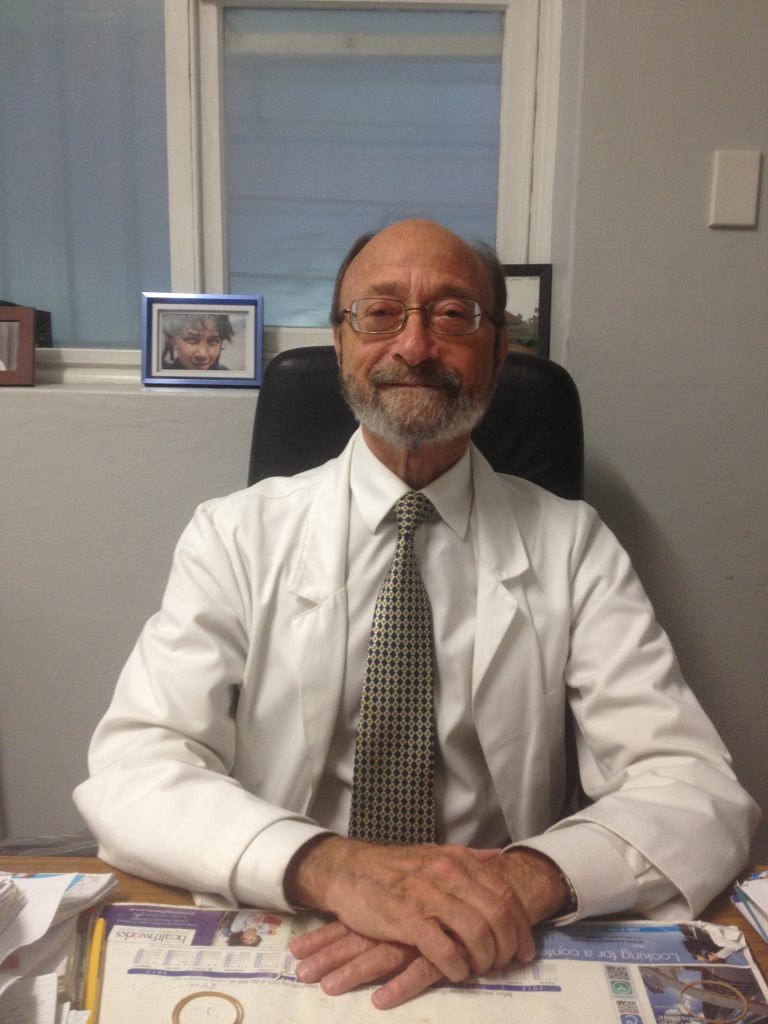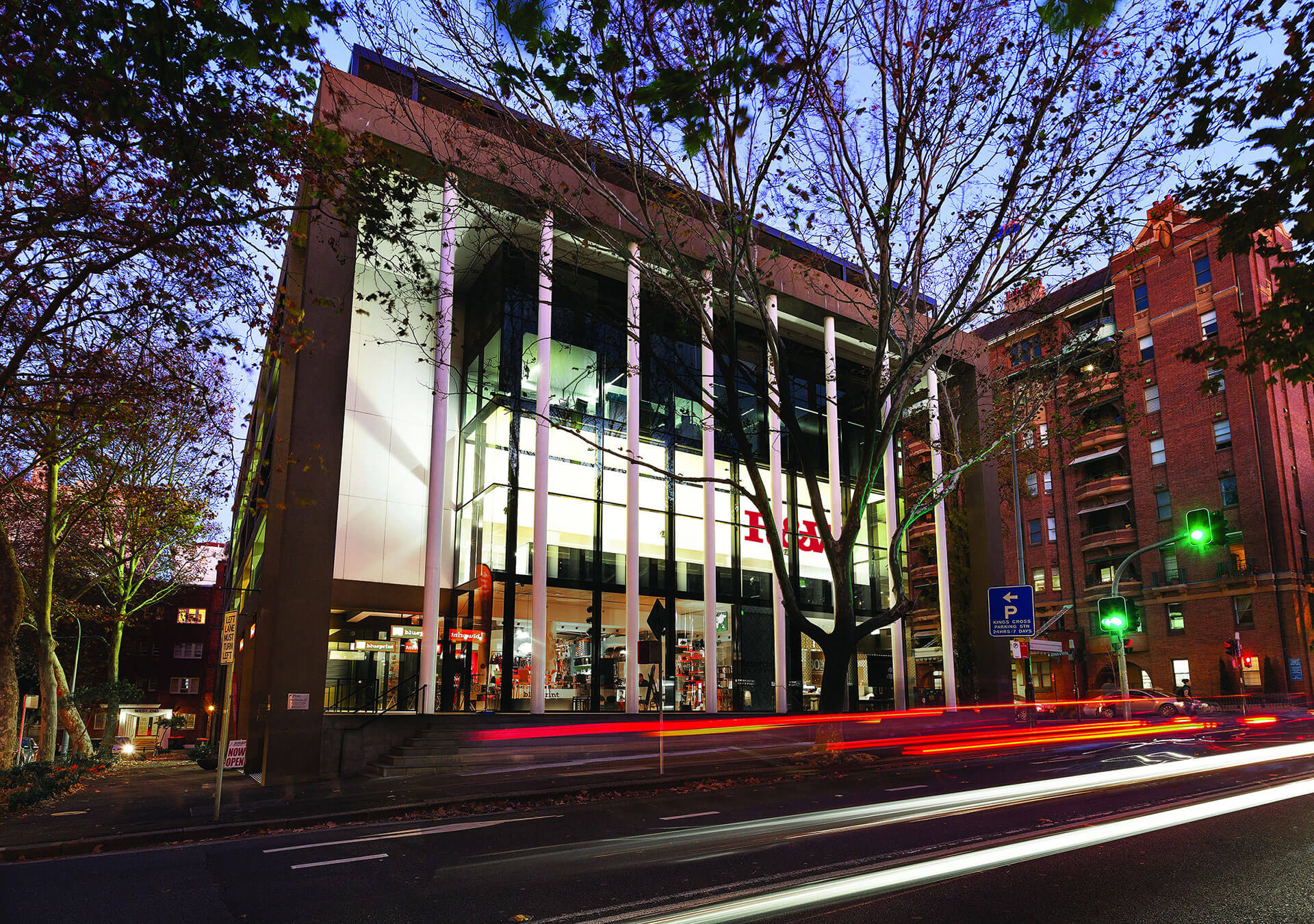THE DOCTOR IS “IN”

Doctor Tony Trachtenberg is a man of glittering prizes and glittering surprises.
His sole-practitioner GP’s surgery sits silently on the corner of Barncleuth Lane and Elizabeth Bay Road, Potts Point, with its unpolished and hand-coloured, brass plaque. It belies the brilliance within.
He’s been a local GP for 45 years and is one of a dozen GPs servicing this area. He was born of Russian Jewish parents as a Dutch National in Indonesia. The family fled their Indonesian tea plantation with its 20,000 employees for Australia in 1955 when animosity towards the Dutch mounted. It culminated in their eventual withdrawal in 1949 and Indonesia’s independence. They escaped with £50 pounds. Tony was only 12 years’ old. All he and his brother knew what to expect from a government booklet was the likelihood of kangaroos in main streets. They didn’t want to go to Australia. Stopping over in Darwin en route they looked from their hotel room and saw – kangaroos in the main street! Tony’s first day of school at Rose Bay Primary created conflict and curiosity. He spoke no English. “You new ‘ere, mate?” he was quizzed. He instinctively changed his name from the Russian, Anatoly, to Tony, comparing himself to the famous, handsome Hollywood film star actor, Tony Curtis. “Just call my Tony”, he replied quickly, deliberately mis-pronouncing words and emulating the broad, nasal Aussie accent. Tony is a quick learner.
He was Dux in his first year at Randwick High school and was admitted to a selective school, finishing with honours and a scholarship to the prestigious Medical Faculty at the University of Sydney. He passed with more distinctions, collecting another glittering prize: a scholarship to research pharmacology and the effects of a heart-related drug. Unusually, he and his partner finished quickly, collecting an honours degree in science on the way in only four months.
He did a country term in Tamworth, “learning by osmosis”; letting others’ experience seep in, which he strongly recommends for all new doctors.
“I had great teachers”, he says , working for 2 years as a Resident Medical Officer at the Sydney Hospital, as well as an emergency medical officer on call, and in the Crown Street Women’s Hospital. He specialised in paediatrics at the Prince of Wales Hospital: his work with children is still a golden thread in his career. He gave lectures on smoking for the Cancer Council of NSW before teaming up with Dr Michael Kennedy, an experienced GP in Elizabeth Bay, for 24 years. The spoke ten languages between them.
This well-rounded approach gives him added perspicacity.
“A really excellent GP is well-trained, up-to-date and puts his patients first. He knows his own limitations”, he says. When he was ill himself last year for several months he still attended his surgery to tend to patients’ care and readily refers them to a specialist. He sees abut 30-40 patients a day. ”I treat them as my ‘family’, offering nurture, love, patience and kindness.” His window shelf has twenty poignant portrait photos of his family constantly looking over his shoulder, seemingly whispering into his ear, “We love you too”. No wonder the waiting room knows all types. On one day a senior Catholic Cardinal, the Chief Rabbi and five saffron-robed monks were all waiting as part of a sort of ecumenical conclave of consultations. “:To me, they all had equal value as human beings,” he says.
He unwinds with family, friends and exercise; initially tennis and golf and track and field events, winning a silver medal in the Australian Championship javelin. He’s only 74, going on 54 four, and has no intention of retiring. “I love my work and I love my patients. I wouldn’t trade it for anything else”, he states simply.
And work is not a four-letter word for him. He starts at 5:30am analysing blood test results, x-ray results, specialists’ reports he’s ordered and journals, and practices the lost art of thinking – all crucial to his patients’ well-being. He keeps himself and his patients well-informed. 20 articles on hot medical issues are pinned to the waiting room notice board. Clearly, a good decision is an informed decision. And he applies psychological medicine, using his insight to understand the context and root cause of patients’ ailments.
But he sticks to some traditions. No computers or beep-beep, hi-techno gadgets clutter his desk or distract his attention. His prime focus is the patient. The computer waits outside in reception. His perfectly knotted, suave silk tie, white coat and quaint, well-worn, hand-written card system, “the back-up system“, all indicate the approach of the classic, thorough physician.
Patients told this author he is brilliant and oozes intelligence. He brushes this off, remarking that they come to receive his expertise, his raison d’être. It’s all part of an evidence-based diagnosis and prognosis.
“The future of medicine lies in the best use of science and technology. When I started, child leukemia fatality rates were high at more than 90%. Now they’re 10%. We’re going to have to look at medical costs as the population ages. Some means-testing seems reasonable and a closer look at over-ordering by doctors of various over-lapping tests is needed,” he suggests.
He accepts patients without appointments and can bulk bill. The surgery is open four days a week, Monday to Wednesday and Friday 8am to Midday and from 2pm to 4pm. Phone 9358 5221
Dr Tony Trachtenberg, MB.,BS., B.Sc.(hons)(med), a matrix of insight, foresight, humanity and expertise.





